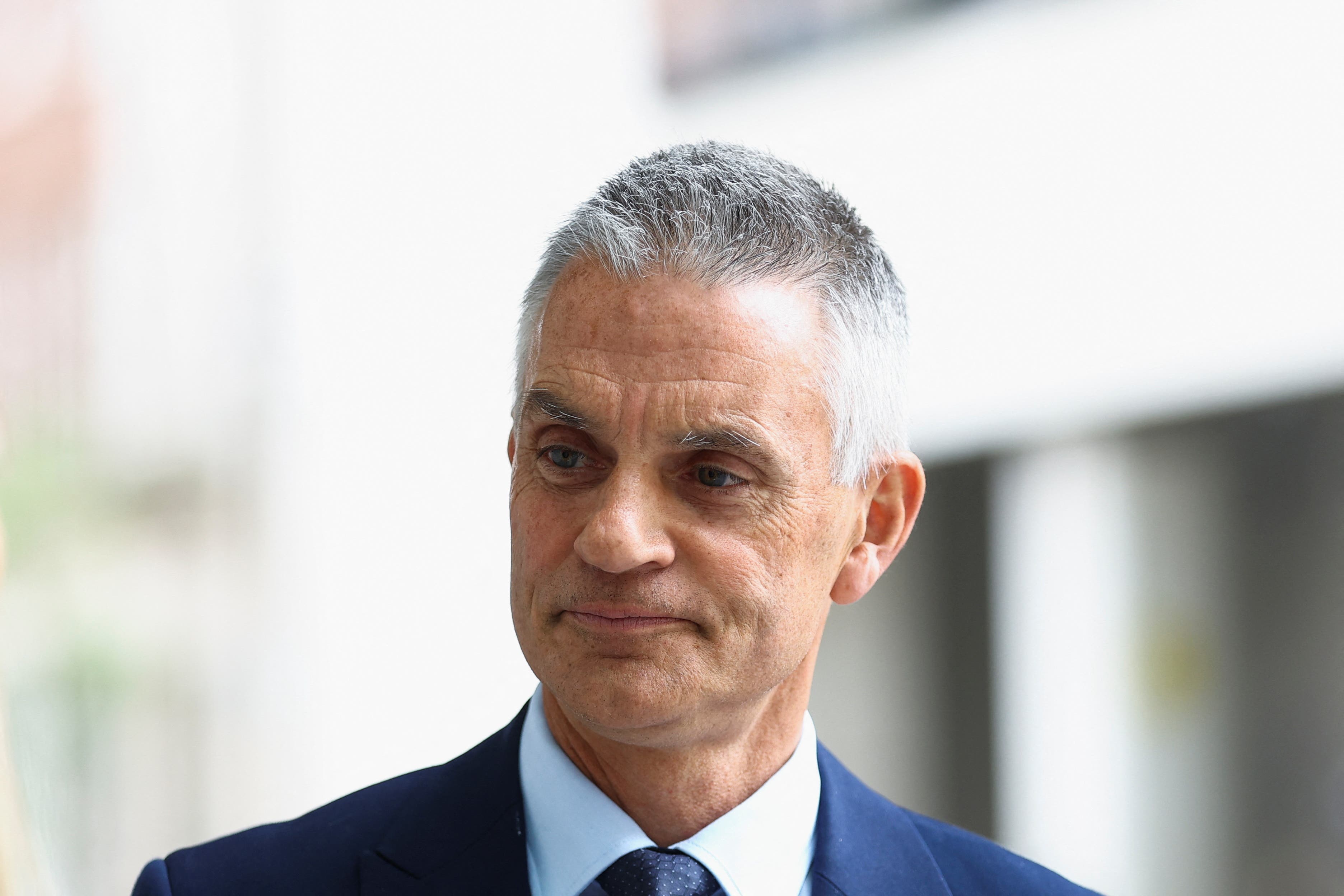BBC chairman Richard Sharp faces calls to quit over Gary Lineker meltdown
Sharp can’t ‘define impartiality’ because of Boris Johnson link probe, says ex-executive
Your support helps us to tell the story
From reproductive rights to climate change to Big Tech, The Independent is on the ground when the story is developing. Whether it's investigating the financials of Elon Musk's pro-Trump PAC or producing our latest documentary, 'The A Word', which shines a light on the American women fighting for reproductive rights, we know how important it is to parse out the facts from the messaging.
At such a critical moment in US history, we need reporters on the ground. Your donation allows us to keep sending journalists to speak to both sides of the story.
The Independent is trusted by Americans across the entire political spectrum. And unlike many other quality news outlets, we choose not to lock Americans out of our reporting and analysis with paywalls. We believe quality journalism should be available to everyone, paid for by those who can afford it.
Your support makes all the difference.BBC chairman Richard Sharp is facing growing calls to resign amid the Gary Lineker impartiality row which has sparked an unprecedented crisis at the corporation.
Roger Bolton, a former senior executive at the BBC, joined calls from opposition parties and senior media figures for Mr Sharp to quit.
Mr Bolton said the chairman was compromised by the investigation into whether he failed to properly share details of his involvement in facilitating an £800,000 loan for Boris Johnson when he was at No 10.
“The BBC chairman now needs to resign,” he told GB News. “The very fact that he can’t speak out on the subject and defend the BBC and define impartiality, as the chairman of the BBC, means he can’t do his job. So, I’m afraid he should go.”
Labour’s shadow culture secretary Lucy Powell said Mr Sharp is “totally unable” to handle the Lineker crisis because he is compromised by the Johnson link investigation.
“His position is now increasingly untenable. I think he, at this stage, should be reflecting on whether he’s able to do that very important job,” she told Times Radio on Sunday.
She has written to culture secretary Lucy Frazer to demand that Mr Sharp’s position is “urgently clarified”, saying his involvement in arranging a loan for Mr Johnson has “profoundly damaged the perception of the BBC’s impartiality”.
Liberal Democrat leader Sir Ed Davey called on Mr Sharp to resign, saying there was a “dire need” for the BBC to “urgently protect their independence”.
It comes as Lineker’s son has said he thinks the sports presenter will return to Match Of The Day – but that he would not “back down on his word”, after he appeared to compare Tory language over small boats to 1930s Nazi Germany.
Director-general Tim Davie is also under pressure on the row, but insisted he would not quit. He hinted at a climbdown, admitting BBC impartiality guidelines lacked clarity – adding that he wanted to “make sure he can come back on air”.

Roger Mosey, former head of BBC TV News, also called for Mr Sharp to step down because he had “damaged the BBC’s credibility” and couldn’t lead on the Lineker row.
And Baroness Wheatcroft, a crossbench peer on the Lords communications committee, said the BBC should “call for the suspension” of “clearly political” Mr Sharp.
Lord Chris Patten, former chairman of the BBC Trust, said he was “surprised” by Mr Sharp’s silence during the furore and suggested he should “consider his position”.
Asked by the Sunday Times if he should resign, Lord Patton remarked: “Is the correct phrase, ‘I’m sure he’s considering his position’?”
BBC staff are said to have concerns about questions over the impartiality of Mr Sharp – who gave £400,000 to the Tory party – if Lineker is forced out. A senior BBC journalist told the newspaper that the chairman was a “lame duck who was unable to defend the BBC’s interests”.

Former BBC Sport chief Peter Salmon says Mr Davie – who has been in Washington – is “isolated” and needs to “come home and grip” the Lineker crisis.
But Mark Thompson, former director-general, urged patience with Mr Davie to sort out the mess, telling BBC’s Sunday with Laura Kuenssberg: “On face of it, Gary Lineker’s tweet looks like technical breach of guidelines.”
But Mr Thompson acknowledged there was a “grey area” in play, saying his tweets on Tory policy was “not like a news presenter tearing up principles”.
Asked about Mr Sharp’s future, Mr Thompson said “the most sensible thing again is just calm down, ignore the papers and let the person who is doing the inquiry complete their inquiry” instead of making decisions “on the fly”.
Former Tory chancellor George Osborne said Mr Sharp might prove “collateral damage” from the Lineker controversy, but stopped short of calling for him to quit.
“The chairman of the BBC should be there to defend the BBC, come thick or thin, against the government and Richard’s got to show in the next couple of days he can do that, and perhaps broker some kind of deal,” he told Channel 4’s The Andrew Neil Show.
Chancellor Jeremy Hunt rowed back from demanding an apology for Lineker comments. Asked if he still thought the TV pundit should apologise, he told Sky News: “I don’t agree with his comments … but I don’t think it’s for me to decide how that issue is resolved.”
Labour’s shadow chancellor Rachel Reeves told BBC Sunday with Laura Kuenssberg: “The Tories have obviously put a huge amount of pressure … to get rid of Gary Lineker. I don’t remember those same Tory MPs crying about impartiality when those revelations about Richard Sharp came out.”
But Tory MP Simon Clarke said “comparisons to the 1930s are deeply inappropriate and tasteless”. He said the BBC needed to “resolve the ambiguity” over impartiality rules on social media.





Join our commenting forum
Join thought-provoking conversations, follow other Independent readers and see their replies
Comments